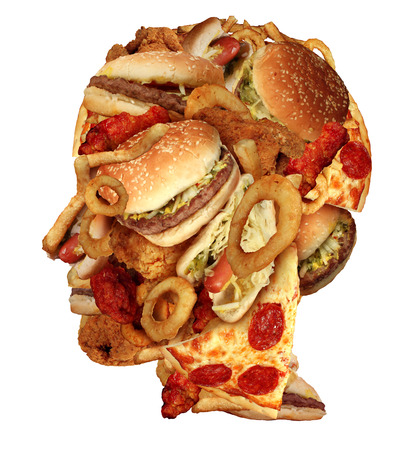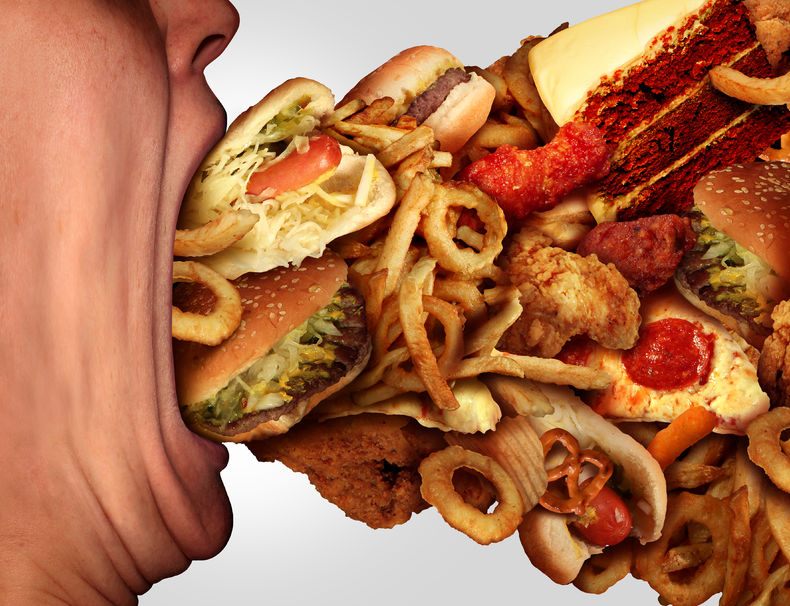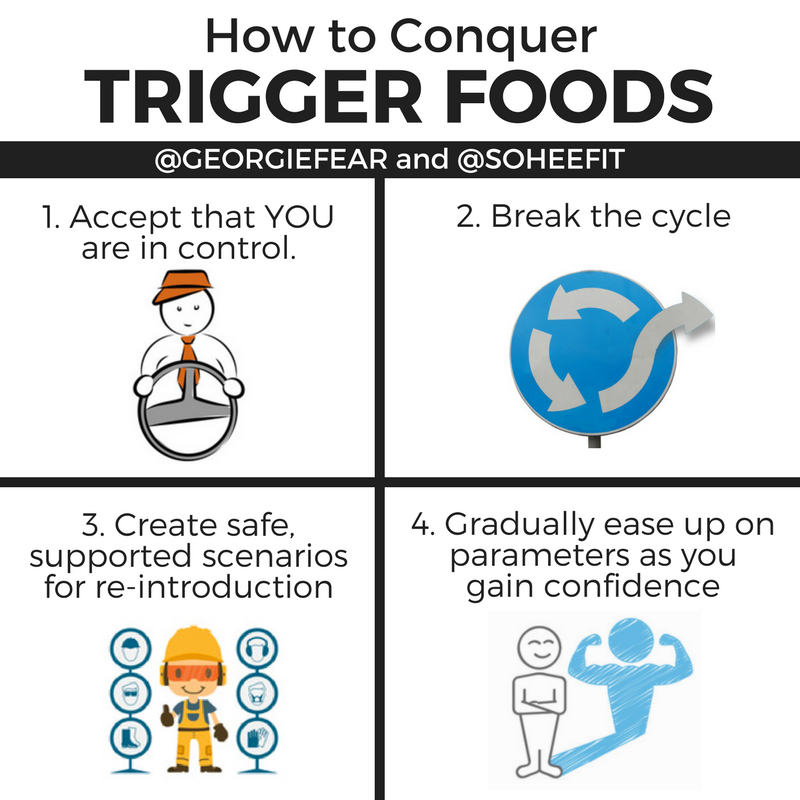Mea Culpa
Let me start off by apologizing. To all of the clients of my past, and all the blog posts, and all the times I advocated for cheat days. I was wrong.
The problem with being a young trainer in the fitness industry is that there really aren’t very many people ahead of you in the industry. In an industry with a turnover averaging three years, that means that the trainers who look wise and sage have often been in the industry for like five years.
And I read so many books that advocated cheat days…
…and I had such good intentions.
And I was wrong.
The majority of people find that a cheat day sets them on a mentally draining cycle of restricting too hard and then cheating too hard
In My Defense
The one thing I will say is that population makes a huge difference. Early in my career, most of my clients were super type-a, hard dieting clients. A cheat day, I thought, was a way to get them to give themselves permission to go off plan once in a while. It gave them a certain amount of flexibility that they hadn’t had before. It worked well for a certain percentage of people, for a while.
I still believe in flexibility, but we have a much better route to get there now.
We know that rigidly adhering to diet rules is a short road to failure. I just hadn’t realized how much the cheat day perspective was reinforcing that. I didn’t realize that, in the long term, that black and white food perspective was making it much, much harder for people.
There’s a better way, that works for more people, more often. For the smaller percentage of people that a cheat day can work for, that leaves a much larger percentage of people that it makes things worse for. People who find that a cheat day sets them on a mentally draining cycle of restricting too hard and then cheating too hard.
Over the years I learned and grown. I’ve been slowly backing away from cheat meals for about four years, and have cut it off completely with personal clients in the last two years.
Now it’s time to make it exactly clear why you should stop using cheat days, and how to be more successful without them.
A Smarter, More Effective Way
What we’ve found is that most people get much, much better results when their food consumption is pretty even from day to day.
- We take the “too little during the week,” and bump it up
- We take the “too much on the weekend” and bring it down
We even things up.
We work on “eating just enough” all of the time. We always pay attention to how our stomach feels and what’s going to have us feel good during and after the meal.
We find that we can have treats from time to time, but we don’t really ever have to go overboard.

Why People Want Rules
People want hard diet rules like “Don’t eat this food!” or “No carbs after 4pm” or “No treats except for your cheat day” because it feels like it’s going to be easier and simpler than taking the time to practice actual skills.
Unfortunately, it just doesn’t work if you don’t have the skills.
It takes time and practice to build your own food flexibility skill-set. It takes time, but it’s worth it.
No one set of rules is going to work for everyone. You need to have food skills and philosophies that are tailor made for you. You need to practice the skills, and hone them to a perfect fit for you. Fortunately, we’re going to go over some of the skills you can use for this in the second half of this post.
Example: Samantha
Samantha has been really focused on “eating clean” for the past few years. She’s really careful about what she can and can’t eat during the week. Then, on the weekends, she “does ok for breakfast and lunch” then “falls off the wagon at dinner” with a appetizers, the bread basket, a big dinner, desert, and alcohol, if she goes out. If she has a weekend in, it’s mostly just eating desert all weekend. Often, she’ll look up from a bag of cookies to find she’s eaten much more than she wanted to.
Either way, she feels gross in her body, and thinks about how guilty she feels. Sometimes she feels stupid, knowing that even for a free day, somehow she had too much. She steps on the scale on Monday, which leads to feeling like a failure, feeling ugly, beating herself up, and renewing her commitment to eat even “cleaner” and restrict even more this week. The cycle repeats with regularity, and you could plot how badly she’s going to feel about herself each week on a calendar.
She feels like once she starts eating treats, it’s like she can’t stop. She feels frustrated and stuck, and often feels like her body is her enemy.
Why Rigid Diet Rules are a Recipe for Failure
With or without a coach, you need to ditch the rigid rules. Rigid plans always break when something in your life comes up or you get stressed out. Said simply, rigid dietary rules have been consistently shown as the path to failure.(a)(b)(c)(d)(e)(f)
Buildings and bridges
Are made to bend in the wind
To withstand the world
That’s what it takes
All that steel and stone
Is no match for the air, my friend
What doesn’t bend breaks
What doesn’t bend breaks—Ani Difranco
It’s like buildings and bridges. Buildings and bridges look rigid, but (to quote Ani Difranco) they’re made to bend and sway in the wind. If they’re completely rigid, they break. Diets are exactly same way — if they have rigid rules they break.
Video above: How the Golden Gate Bridge can sway
Food skills, on the other hand, can bend and sway in the wind of your changing schedule and commitment and stress levels. That’s why we work on food skills — they have the kind of flexibility that works in real life.
Cheat Days Are The Consolation Prize for Diet Rules
Cheat days are a way to reward yourself for your rigid dietary restraint, which as we remember, doesn’t work. The black and white thinking is actually reinforced by deliberately having on/off days.
A “cheat day” is simply a free-for-all consolation prize
for white-knuckling your rigid diet rules all week
Essentially, what you’re teaching yourself, is to rigidly restrain your diet all week (which doesn’t work) followed by over the top eating for a day (which also doesn’t work). The cycle tends to get worse over time — people feel like crap after massively over-eating on their weekend, and then restrict harder during the week. Restricting harder during the week increases the over-eating on the weekend, which can even turn into binge eating.
One thing we want to be absolutely clear about — more dietary restriction during the week doesn’t help. More dietary restriction leads to more binging and failure at weight loss.(b)(f)
Example: Jessica
Jessica used to cycle between eating clean and cheat days, but has been practicing a habits/skills based approach for the last year.
Her weekends have started to even out. She’s slowly been practicing “Eating Just Enough” with both meals and treats, and is experimenting with leaving room for treats when she wants to have one. She’s noticed that, since she can have treats “whenever she wants” she no longer feels like she “loses control” when she’s around treats. She’s practiced starting and stopping having treats, and now trusts herself to do so. She really likes how she feels now, in general. She likes that she can listen to her body and stop when she’s full. She also knows that some treats are harder to stop with, so she uses the strategy of separating herself from where she can get more, and/or having those treats with friends instead of when she’s alone.
Before, treats would often often completely get away from her if she was feeling sad, bored, or tired. Now, she has treats when she wants treats, and she has treats she really enjoys. When she’s sad, she goes for a walk or calls a friend. When she’s tired, she goes to sleep early. When she’s bored, she reads a good book, watches a good TV show, or weaves on her loom (which is a hobby she really likes, but often forgets to do). She finds she takes better care of herself in general.
Jessica now isn’t afraid of treats, and doesn’t feel like she “needs” or “deserves” a cheat day. She follows her food skills (eating slowly, eating just enough, 3-4 meals per day without snacking) because they make her feel good. When she has treats, they fit into the same skills she always works on. She always feels good after meals, and she likes her body just as much on Monday as she does on Friday, or any other day.
What To Do Instead of Cheat Days
What you want to do instead of cheat days is even it all out.
You want to have the flexibility to have treats sometimes, but still not go massively overboard on the quantity of food that you normally eat.
Your flexibility in food skills determines your success.(d)(e)(f) You want to learn how to have treats, practicing the same skills you are practicing for all of your other meals.
In other words — if you are practicing the skill of Eating Just Enough, you can practice that all of the time, including with treats. We know it’s going to be way too much if people eat just enough, and then eat treats on top of that. Instead, if you are going to have some treats after dinner, you can probably have a little less dinner to save room for the treats.
If you’re practicing the skill of Eating 3-4 Meals, Without Snacking, you can practice that all of the time, including with treats. We know people will eat more treats if they have dinner at one time, and then an hour or two later, go have treats. Instead, you can eat your dinner, and have the treat immediately after dinner.
If you are practicing the skill of Eating Slowly you can practice that all of the time, including with treats. We know if people wolf down their treats super fast, they’re going to want more immediately. Instead, you can eat your treat slowly, savoring every bite, and actually be satisfied with it.
People Need a System to Learn Moderation
Fortunately, we have a four step system for learning how to moderate treat intake. Moderation isn’t something most people can do immediately, they usually need to be taught the skills, in these four steps, and practice them progressively:
Georgie Fear and Sohee Lee created the infographic above, and wrote this article about then about how to do each step that you can read here:
=> http://onebyonenutrition.com/how-to-conquer-your-trigger-foods/
The Cool Thing About Skills Is That Treats Fit In
Instead of relating to a diet, where it’s always on/off with rigid rules, skills give you options and flexibility. You can have treats sometimes, and still practice paying attention to your body and eating in a healthy and reasonable way.
Practice the skills, get better at them over time, and you’ll be able to actually fit treats into your life without compromising results or feeling guilty. You’ll have a reasonable, flexible program that you can maintain for the rest of your life, and hit all of your goals.
Here are your three big takeaways:
- Being flexible like a suspension bridge is the key to long term weight loss success.
- Use the same skills (like eating just enough, meals/not snacks, or eating slowly) for everything you eat, regardless of what it is.
- Use the four step system to build your skills with foods your normally have a tough time moderating.
Remember to keep your food plan flexible, like the Golden Gate Bridge.
by Josh Hillis
Chief People Officer, One by One Nutrition
Author, Fat Loss Happens on Monday
Habit coaching columnist, Strength Matters Magazine
Huge thanks to Georgie Fear for help with the research on this one —
Research:
(a) Palascha, A., van Kleef, E., & van Trijp, H. C. (2015). How does thinking in Black and White terms relate to eating behavior and weight regain?. Journal of health psychology, 20(5), 638-648.
My notes: Thinking about food in black and white “good” and “bad” foods relates to regaining weight that was lost.
(b) Blomquist, K. K., & Grilo, C. M. (2011). Predictive significance of changes in dietary restraint in obese patients with binge eating disorder during treatment. International Journal of Eating Disorders, 44(6), 515-523.
My notes: Restrictive eating did not reduce binge eating or increase weight loss. Flexible dieting did cause weight loss and reduce binge eating.
(c) Sairanen, E., Lappalainen, R., Lapveteläinen, A., Tolvanen, A., & Karhunen, L. (2014). Flexibility in weight management. Eating behaviors, 15(2), 218-224.
My notes: Rigid dietary restraint = harder time managing weight and lower well being. Flexible dieting = easier time managing weight loss and higher well being.
(d) Byrne, S. M., Cooper, Z., & Fairburn, C. G. (2004). Psychological predictors of weight regain in obesity. Behaviour research and therapy, 42(11), 1341-1356.
My notes: The biggest psychological predictor of weight regain is black and white thinking about food.
(e) Meule, A., Westenhöfer, J., & Kübler, A. (2011). Food cravings mediate the relationship between rigid, but not flexible control of eating behavior and dieting success. Appetite, 57(3), 582-584.
My notes: With rigid dieting, food cravings determine your success (you have very little control). With flexible dieting, your dieting flexibility predicts your success, regardless of cravings (you are in control). Flexible dieting = win.
(f) Smith, C. F., Williamson, D. A., Bray, G. A., & Ryan, D. H. (1999). Flexible vs. Rigid dieting strategies: relationship with adverse behavioral outcomes. Appetite, 32(3), 295-305.
My notes: The highest predictor of failure was dietary restraint. The highest predictor of success was dietary flexibility. People who believe themselves to be on strict diets are unsuccessful with weight loss maintenance. Also, dealing with binge eating by being more restricting during the week REALLY don’t work.





Leave a Reply